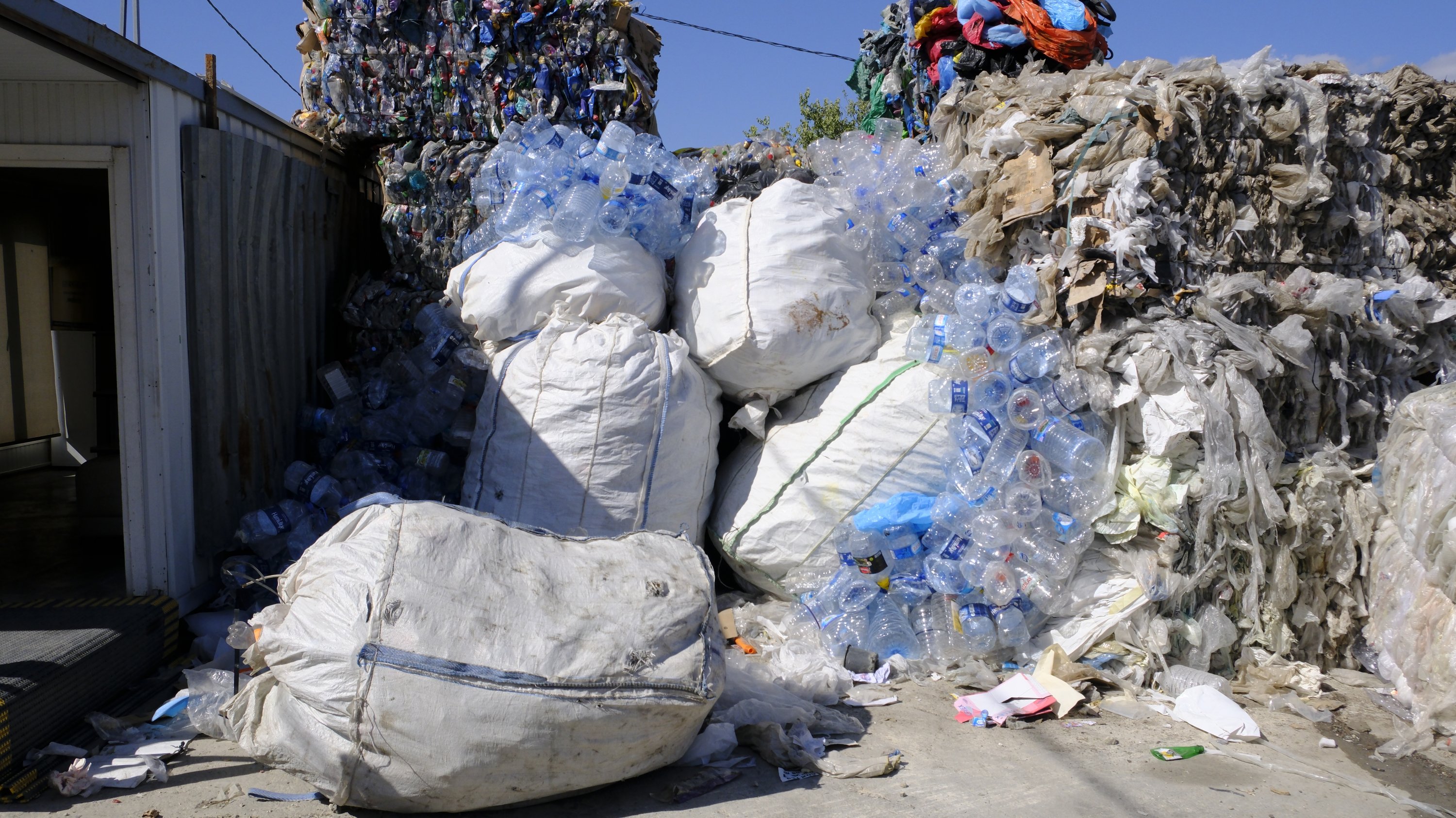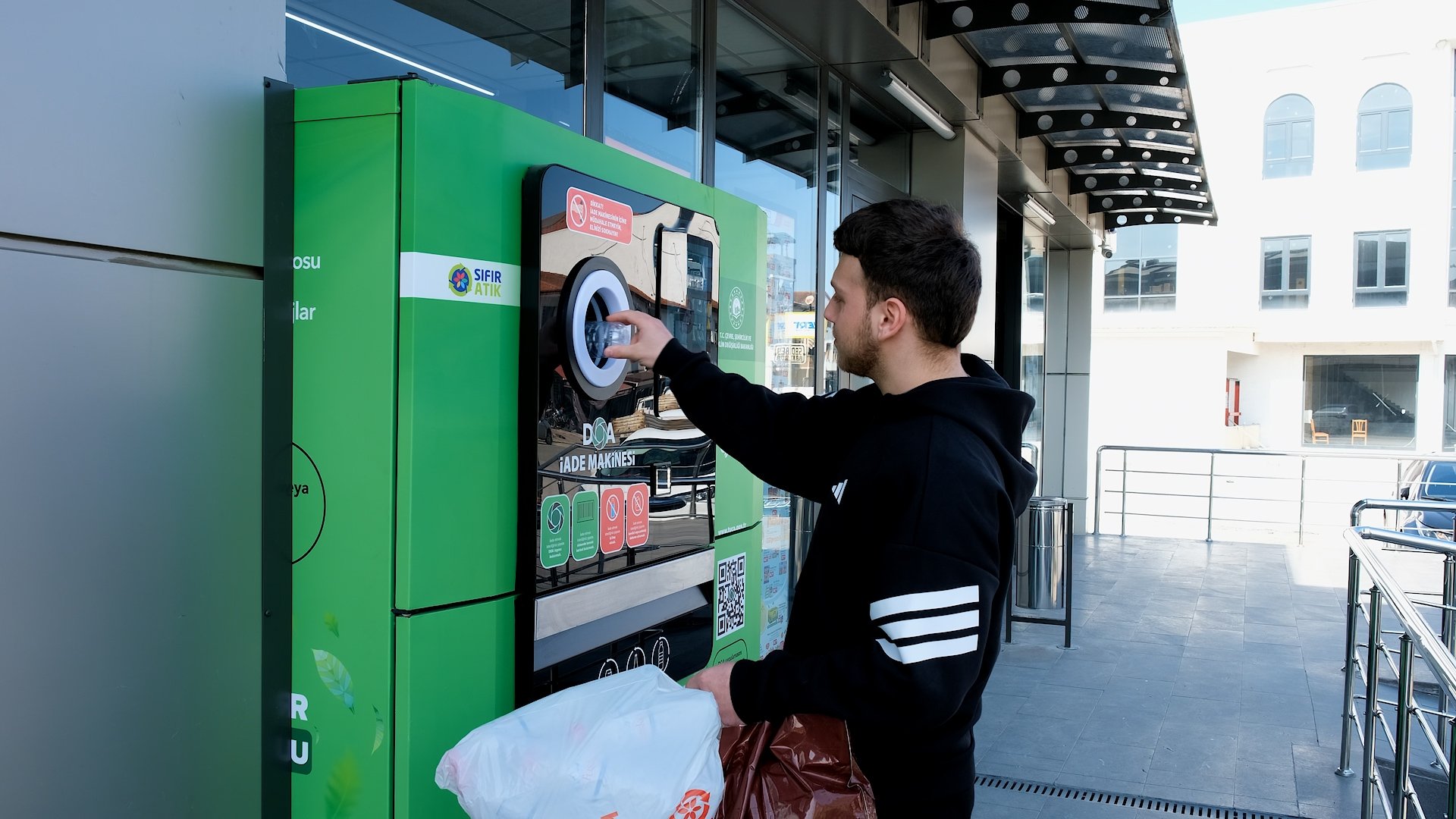Physical Address
Indirizzo: Via Mario Greco 60, Buttigliera Alta, 10090, Torino, Italy
Physical Address
Indirizzo: Via Mario Greco 60, Buttigliera Alta, 10090, Torino, Italy

Launched under the patronage of First Lady Emine Erdoğan, Türkiye’s Zero Waste initiative marked its eighth anniversary this week, celebrated as a homegrown environmental project that has grown into a global movement recognized by the United Nations.
The program, which began on Sept. 27, 2017, with the slogan “The world is our common home,” now continues under the theme “For 8 billion People in its 8th Year.”
Coordinated by the Environment, Urbanization and Climate Change Ministry, the initiative has expanded beyond Türkiye’s borders, drawing international support and inspiring similar projects worldwide.
Over the past eight years, the Zero Waste program has introduced waste management systems in more than 205,000 buildings across Türkiye. The country’s recycling rate, just 13% when the program began, has now risen to over 36% in 2024. Ankara aims to raise that figure to 60% by 2035.
The impact has been wide-ranging. More than 74.5 million tons of waste, including paper, plastics, metals, glass and organic material, have been recycled. Officials estimate that recycling efforts have contributed 256 billion Turkish liras ($8.8 billion) to the national economy, while saving the equivalent of 1.7 trillion liters of water and 54.6 billion liters of oil.
Energy savings have also been significant: 227.3 billion kilowatt-hours were preserved, equal to the annual electricity needs of 40 million households. More than 552 million trees were saved from being cut, an area of forest nearly 10,000 square kilometers, about 6% of Türkiye’s entire forest cover. In addition, recycling prevented 150 million tons of carbon dioxide emissions, equivalent to taking 30 million cars off the road for a year.
“This project shows that environmental protection and economic growth can go hand in hand,” Environment Minister Mehmet Özhaseki said in a statement marking the anniversary.

In 2019, the “Zero Waste Blue” program was launched to combat marine litter along Türkiye’s extensive coastlines. Since then, more than 585,000 tons of marine waste have been removed, while awareness campaigns and local action plans have been introduced in 28 coastal provinces.
New five-year action plans, beginning in 2025, aim to expand the project further with stronger enforcement and broader education programs.
Another key feature of the movement is the Deposit Return System, operated by the Turkish Environment Agency. First piloted in Ankara and Sakarya, the program has since expanded to seven provinces, with reverse vending machines collecting around 50,000 beverage containers daily.
To date, nearly 6 million bottles and cans have been recycled through the system. By 2026, the government aims to roll out the program nationwide, targeting 25 billion containers each year. Officials say this would generate an estimated €520 million ($561 million) annually in savings and revenue while reducing waste imports and disposal costs.

Türkiye’s efforts have gained international recognition. In December 2022, the U.N. General Assembly declared March 30 as International Zero Waste Day, following a resolution led by Türkiye and supported by 105 countries. Each year, the day is marked by events at U.N. headquarters and around the world.
At the U.N. in New York last year, Emine Erdoğan became the first spouse of a Turkish leader to address a special session on waste reduction. She now chairs the U.N.’s High-Level Advisory Board on Zero Waste, which includes representatives from countries across several continents.
The Global Zero Waste Goodwill Declaration, spearheaded by Erdoğan, has drawn more than 15,000 signatures from 114 countries, including political leaders, international organizations and civil society groups.
Speaking at a recent U.N. event, Erdoğan said: “Zero Waste is not only an environmental policy but a moral responsibility. We owe it to future generations.”
The initiative has also received a series of international awards, including recognition from the U.N. Development Programme, the Food and Agriculture Organization, U.N.-Habitat and the World Bank.
Inspired by Türkiye’s success, other nations have sought to adopt similar programs. During the U.N. General Assembly this weel, Zita Oligui Nguema, the First Lady of Gabon, said her country hoped to collaborate with Türkiye to launch a waste-reduction campaign.
President Recep Tayyip Erdoğan has repeatedly underlined the project’s symbolic value, calling it “a message from Türkiye to the world that our planet is our shared home.”
As the initiative enters its ninth year, Ankara is positioning Zero Waste not just as a domestic policy but as a model for global environmental cooperation.